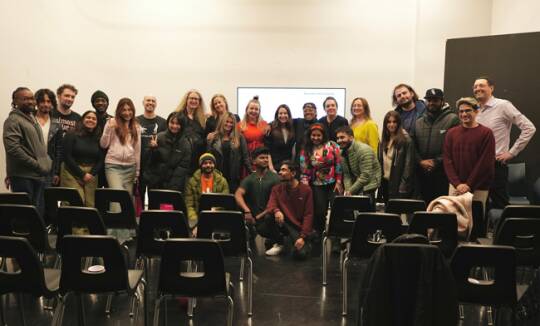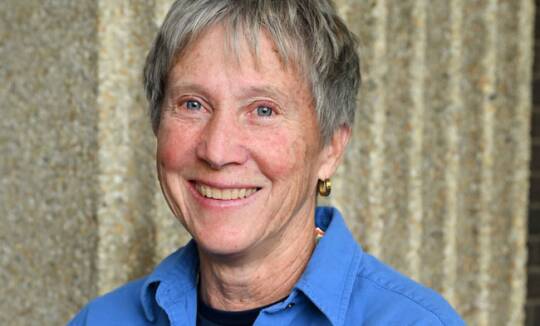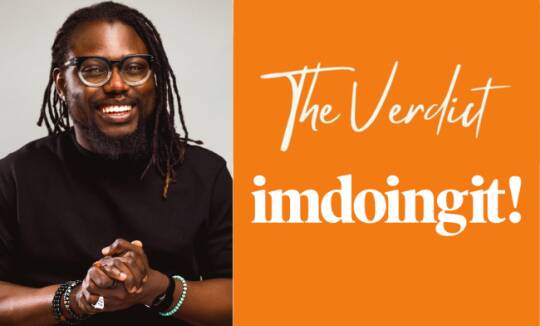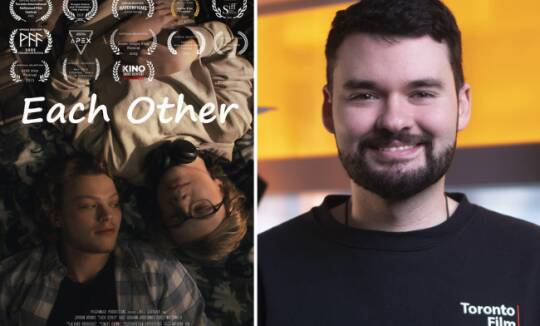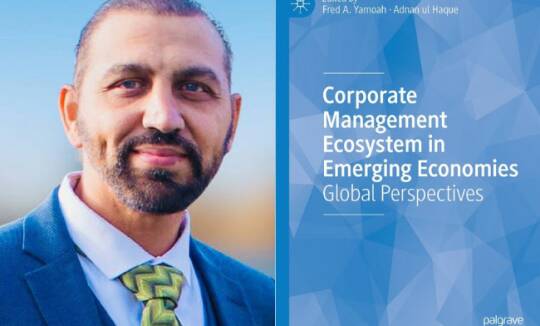Yorkville University recently released a Statement of Solidarity in which we, as a community, stated our commitment to fully engage in conversations around how we can create more inclusive environments for students and staff.
Among the promises made in that statement by our President, Dr. Rick Davey, was that we, as a school community, would vow to “unequivocally oppose and disavow racial discrimination in any form” and “stand in solidarity with the Black community and Indigenous communities in the fight against systemic racism and injustice.”
As part of that work, our Yorkville University Bachelor of Interior Design faculty took it upon themselves to launch an initiative to support their equity- and justice-seeking students by compiling a list of links to relevant industry and professional organizations.
Inspired by their work, we decided to expand that initiative into a university-wide one – enlisting academic leadership in each of our faculties to submit similar resources that might be considered helpful for their respective students.
Here are the links to those resources, by program/faculty:
Bachelor of Interior Design:
National Organization of Minority Architects (NOMA)
NOMA’s mission, rooted in a rich legacy of activism, is to empower its local chapters and membership to foster justice and equity in communities of color through outreach, community advocacy, professional development and design excellence.
Architects/Designers/Planners for Social Responsibility (ADPSR)
ADPSR works for peace, environmental protection, ecological building, social justice, and the development of healthy communities.
The Black in Design Conference, organized by the Harvard University Graduate School of Design African American Student Union (GSD AASU), recognizes the contributions of the African diaspora to the design fields and promotes discourse around the agency of the design profession to address and dismantle the institutional barriers faced by Black communities.
Black Females in Architecture (BFA)
BFA is a network and enterprise founded to increase the visibility of Black and Black mixed heritage females within architectural industry and other built environment fields. In so doing, BFA actively addresses issues of inequality and diversity within the industry.
BlackSpace challenges architects, planners, urban designers, artists, and all curators of built spaces to unlearn traditional values and rethink Manifesto-based practice. BlackSpace also create spaces for Black urbanists to use talent, culture and rituals to design Black futures, and continues to demand a present and future where Black people, spaces, and culture matter and thrive.
Other resources:
– https://archleague.org/the-architectural-leagues-statement-on-racial-justice/
Bachelor of Business Administration:
Black Enterprise is the premier resource for Black entrepreneurs, Black-owned businesses, and career, tech, and money content for Black people.
Black Business Initiative (BBI)
BBI is committed to growing Black presence in a diverse range of business sectors, including high-tech, manufacturing, tourism and the cultural sector.
Black Business and Professional Association (BBPA)
BBPA is a non-profit, charitable organization founded in 1983, whose mission is to advance Canada’s Black communities by delivering programs that support business and professional excellence, higher education and economic development.
Minerva BC is a registered charity established in 1999 with a vision of “women helping women.” They support and mentorsindividual women and girls in their programs, helping to remove their personal, financial and professional barriers. Minerva BC also prioritizes respectful, reciprocal relationships between Indigenous and non-Indigenous people – actively seeking to engage, recruit and celebrate Indigenous women as beneficiaries, leaders and teachers in their programs.
Industry Training Authority BC (ITABC)
ITA sponsors a number of community service providers, training providers, and Indigenous communities across BC to deliver trades training and employment programs focused to meeting the needs of vulnerable and under-represented groups in trades occupations, including women, Indigenous people, and other equity-seeking groups through funds from the Government of Canada and British Columbia.
Achieve Anything Foundation (AAF)
AAF inspires future female leaders in STEM, from shop floor to top floor. Among its goals are to: reduce gender disparity in aviation, aerospace, marine, defence, and other STEM-based fields; raise awareness of the limitless opportunities available to women in high technology fields; and ensure its target audience includes women of all ages, and all ethnic, cultural, educational and financial backgrounds.
All Nations Trust Company (ANTCO)
All Nations Trust Company is an Indigenous-owned financial institution whose shareholders are comprised of Bands, Tribal Councils, Indigenous Organizations, Métis Associations, Status, Non-Status and Métis individuals. It has the fiduciary capacity to provide Trust, Agent, and Administrative services, and is also a source of capital for developmental business loans and commercial mortgages.
Atira Women’s Resource Company
Atira is a is a not-for-profit organization dedicated to supporting women and children affected by violence by offering safe and supportive housing and by delivering education and advocacy aimed at ending all forms of gendered violence.
BlyBlacks.com is an award-winning online magazine serving the Black Canadian community. With more 100 writers covering topics ranging from race relations, Black Canadian history, spirituality, fitness, parenting, fashion, food and more, ByBlacks.com helps its readers live better lives. They put all of Black Canada at your fingertips, by providing a comprehensive Black Canadian business directory and a listing of Black-focused events within the Canadian community.
Afrobiz.ca is Canada’s most comprehensive directory of Black-owned businesses and Black entrepreneurs.
National Congress of Black Women Foundation (NCBWF)
The National Congress of Black Women Foundation is a registered charity that promotes and facilitates activities and model programs which foster advancement, recognition, health and education of black women and their families through funding and research.
Black Youth Helpline serves all youth and specifically responds to the need for a Black youth specific service, positioned and resourced to promote access to professional, culturally appropriate support for youth, families and schools.
A playlist of TEDx Talks to help educate on racism and actions to eliminate it.
More Resources:
Systemic Racism in Canada: In Partnership with Carl James:
https://www.crrf-fcrr.ca/en/component/flexicontent/item/27115-learning-about-racism-2
The Conference Board of Canada delivers unique insight into Canada’s toughest problems so leaders can build a stronger future.
Articles of interest:
– Read the email Tim Cook sent to Apple employees about George Floyd (CNBC, May 31, 2020)
– Black in Business: Celebrating the Legacy of Black Entrepreneurship (Forbes, Feb. 3, 2020)
– Black, White and Colourful (The Globe and Mail, Sept. 15, 2001)
– Black + White…equals black (Maclean’s, Aug. 27, 2001)
– Harvard Business Review’s Diversity Section
– Forbes Magazine’s Diversity and Inclusion Section
Faculty of Education
Addressing Racism in the Classroom (Teaching Plus+ podcast, March 27, 2020)
Dr. Cathryn van Kessel from Secondary Education, and Jennifer Ward and Ellen Watson from the Centre for Teaching and Learning talk about how instructors might promote community by addressing potentially harmful comments made by students (especially those related to the COVID-19 pandemic).
Addressing Anti-Black Racism in our Canadian Schools (CRRF webinar, June 1, 2020)
The purpose of this webinar from the Canadian Race Relations Foundation is to examine how anti-Black racism affects the opportunities for students to succeed. Participants will explore topics on unconscious bias, racism, and discrimination. They will also learn approaches to address anti-Black racism in schools. Participants will leave the webinar with a deeper understanding of the systemic barriers affecting Black students and proactive approaches to close opportunity gaps, including by strengthening culturally responsive teaching practices.
Campus Tool-kit for Combatting Racism (Canadian Federation of Students toolkit)
This toolkit discusses organizing and creating a team on campus, and suggestions for organizing in a three-step process the Canadian Federation of Students calls Educate, Escalate and Execute. Additionally, the toolkit discusses building infrastructure on campus, through the creation of Black, Indigenous, and People of Colour student associations, service centres, academic positions and hiring policies.
Creating Racism-Free Schools through Critical/Courageous Conversations on Race (Manitoba Education and Training’s Indigenous Inclusion Directorate)
This 2017 is intended to: inform and encourage educators to recognize the importance of critical/ courageous conversations about the impacts of racism on Canadian society as a whole; describe the various levels of racist practice to inform educators of where and when racism can occur; describe the effects of racism on school divisions, schools, staff, students, and communities; and be a call to action through dialogue and informed discussion, among other mandates.
Watch the entire CNN/Sesame Street racism town hall (CNN, June 6, 2020)
CNN’s Van Jones and Erica Hill partner with Sesame Street for Coming Together: Standing Up to Racism, a town hall for kids and families.
Classroom Library Assessment: How Culturally Responsive Is Your Library? (Open Book Blog, May 2017)
This blog challenges teachers to think critically about how the books in their classroom libraries reflect the diversity of our students, their backgrounds, and the communities in which we live, while exposing them to new ideas and concepts.
Black Lives Matter: A Commentary on Racism and Public Health (American Journal of Public Health, August 2015)
Article by Jennifer Jee-Lyn García, Ph.D., and Mienah Zulfacar Sharif, MPH, focusing on the intersections of racism and public health.
Racialized Poverty in Education & Learning (Colour of Poverty, March 2019)
This fact sheet discusses how racialized people are disadvantaged in education and learning.
How Racism Makes Us Sick (Ted Talk, November 2016)
Why does race matter so profoundly for health? David R. Williams developed a scale to measure the impact of discrimination on well-being, going beyond traditional measures like income and education to reveal how factors like implicit bias, residential segregation and negative stereotypes create and sustain inequality. In this eye-opening talk, Williams presents evidence for how racism is producing a rigged system — and offers hopeful examples of programs across the US that are working to dismantle discrimination.
Dominant Cultural Narratives, Racism, and Resistance in the Workplace: A Study of the Experiences of Young Black Canadians (Society for Community Research and Action, 2016)
This article by Julian Hasford, focuses on experiences of young black Canadians in the workforce.
Podcast: Colour Code (Globe and Mail)
A Podcast about Race in Canada, produced by Globe and Mail and hosted by Denise Balkissoon and Hannah Sung.
Colour of Poverty: Fact Sheets, Tools and Resources
Collection of fact sheets, tools and resources unpacking the intersections of poverty and race in Canada.
Racism in Canada Is Ever-Present, But We Have A Long History Of Denial (Huffington Post, May 29, 2020)
Excerpt from this article by Maija Kappler: “Growing up, people always talked about racism like: ‘It’s over there. It’s in America,’” Black Toronto writer and educator Barbara Yebuga told me. ‘But that’s just not true. Don’t let a border fool you.’”
Want to Reach All of Your Students? Here’s How to Make Your Teaching More Inclusive (Chronicle of Higher Education, July 22, 2019)
Advice Guide written by Viji Sathy and Kelly A. Hogan discusses how teaching inclusively means embracing student diversity in all forms — race, ethnicity, gender, disability, socioeconomic background, ideology, even personality traits like introversion — as an asset.
Bringing Black Lives Matter Into the Classroom (Teaching Tolerance, 2017)
Educator Jamilah Pitts introduces ways to discuss Black Lives Matter across all grade levels.
Can Equity Be Taught? (Edutopia, May 19, 2017)
Master of Arts in Counselling Psychology
Canadian Human Rights Commission (CHRC)
The Commission’s mandate is to protect the core principle of equal opportunity and promote a vision of an inclusive society free from discrimination by: promoting human rights through research and policy development; protecting human rights through a fair and effective complaints process; representing the public interest to advance human rights for all Canadians; and auditing employers under federal jurisdiction for compliance with employment equity.
The Association for Multicultural Counseling and Development (AMCD)
AMCD seeks to develop programs specifically to improve ethnic and racial empathy and understanding. Its activities are designed to advance and sustain personal growth and improve educational opportunities for members from diverse cultural backgrounds. AMCD is charged with the responsibility of defending human and civil rights as prescribed by law.
The American Counseling Association Knowledge Center on Racism
The American Counseling Association is a not-for-profit, professional and educational organization that is dedicated to the growth and enhancement of the counseling profession. Founded in 1952, ACA is the world’s largest association exclusively representing professional counselors in various practice settings.
Black Mental Health Alliance (BMHA)
BMHA’s mission is to develop, promote and sponsor trusted culturally-relevant educational forums, trainings and referral services that support the health and well-being of Black people and other vulnerable communities. Its vision is the creation of an equitable, respectful and compassionate society. The development of Black communities in which optimal mental health enables children, youth, adults, and families to strive for and embrace their best life.
National Alliance on Mental Illness (NAMI)
NAMI is the largest grassroots mental health organization dedicated to building better lives for the millions of Americans affected by mental illness. NAMI works to educate, advocate, listen and lead to improve the lives of people with mental illness and their loved ones.
Articles of interest:
The historical roots of racial disparities in the mental health system (Counseling Today, May 2020)
Five points of discussion for conversations about racial injustice (Counseling Today, April 2019)

